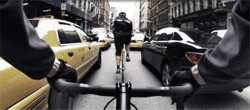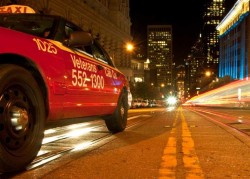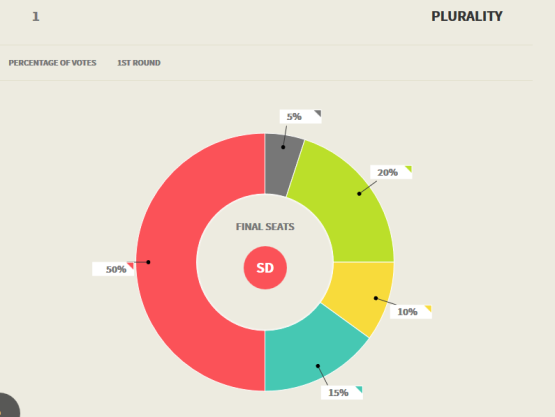Blog Archives
It was a given that there were going to be dropouts from the Republican field before we got to the first primary; it was just a matter of waiting to see who it would be.
Rick Perry is kind of a fascinating figure to be the first drop out. He went into the process once before, bombed abysmally in his first spotlight moment–just when GOP primary voters were desperately looking for an anti-Romney to rally around–and carefully prepped through the succeeding four years to avoid that kind of failure, only to not just lose again but to become the very first dropout. He blamed his 2012 flameout on back surgery and painkillers, and for all that I don’t much like the man, I find that believable. 2012 may have just been a matter of bad timing. But that doesn’t explain 2016
He’s not an incompetent politician or campaigner, having never previously lost an election and having served a record 14 years as Texas’ governor. He comes from the second most populous state in the country, a good base, and a state that has given us three presidents previously (four if you count Ike, but he was only born there, growing up in Kansas).
But he never got any momentum, polling at around 1%. Worse, money wasn’t coming in to his campaign, indicating that those who make strong campaigns possible through financing didn’t see him as a good prospect.
Let me make that clear. The big money doesn’t just go to people the big money likes–it goes to people they think have a chance, because whomever wins they want to have an open door with them, and money is the key that fits the lock. Perry’s lack of fundraising success doesn’t necessarily mean they don’t like him, but that they don’t think he had a chance.
But Perry didn’t connect on the national stage, and I’m no sure why. Maybe it’s because he tried to be a Tea Partier who was moderate on immigration. Maybe, unlike George W. Bush, he played his Texan image wrongly. W used the Texas image in a Reaganesque way, working on his ranch to buff a no-nonsense down-to-earth blue collar persona, while Perry seemed to portray a Texas that is arrogant, insular and sneering toward the rest of the country. Both Texases are real, but only one plays well.
Maybe it’s because he really is an intellectual lightweight, and in more local elections that was part of his strength because he didn’t come off as an egghead, but when he put on the smart glasses to gussy himself up he came off as playing a role, losing the desired sense of “authenticity.”
There’ll be lots of speculation, but there’ll be no hard evidence, just stories that are told more or less persuasively. Jumping into the presidential race is a crapshoot. Former VP Dan Quayle did all the right moves in the first years of the Clinton presidency to set himself up for a 1996 presidential run, criss-crossing the country talking to conservative groups and setting up grassroots organizations in the early primary states. And he’d proven in both his House and Senate campaigns in Indiana that he was an effective hard-working campaigner. But in the end he folded up shop before he ever publicly announced he was running; before most people ever became aware that he was running. The story I’ve heard is that the more people listened to him the less impressed they became.
Just as athletes are sometimes standouts in college while failing in the pros, sometimes politicians play well locally but just lack that special something that makes a person successful at higher levels.
That’s not profound. But I think anyone looking for profundity in the rise and decline of presidential aspirants is looking in the wrong place.
[This is a multi-part series. See parts I and II.
Note: This entry in the series immediately follows the previous entry. I strongly recommend a quick review of part II to re-establish the mood and setting.]
______________________________
“Don’t pick up any black people, especially if there’s more than one of them,” the experienced cabbie told me. “Stay out of Third Street, and Bayview/Hunter’s Point. Don’t stop for anybody there”
I’d stopped after midnight for a passenger on Market Street, who’d turned out to be a young black male, and then two young black males, and they’d taken me down Third Street to Bayview/Hunter’s Point, into a deserted warehouse district, where I expected to die, only to drop them off at the San Francisco Naval Shipyard: two sailors who’d thanked me and tipped me well.
Chagrined, but still shaking off the stress of believing I was about to be shot point blank in the back of the head, I was headed back up Third Street to familiar territory.
“Stay out of Third Street, and Bayview/Hunter’s Point. Don’t stop for anybody there”
I’m not going to.
Stopped at a traffic light, I see a guy wave at me from across the intersection. Black, middle-aged, wearing a Muni uniform, a bus or streetcar driver, maybe the cable cars.
I’m not going to be that guy, and a middle aged bus driver surely can’t be a threat, unless he’s behind the wheel and I’m on my bike. The light changes, I roll forward and stop in front of him.
He’s in a good mood, relaxed, smiling and friendly. He gives me directions, and I recognize the hill we’re going up. It’s the route toward my friend’s home in the feudalistic white enclave above the poor black peasants.
As we skirt around the top of the hill we pass an open grassy area, on fire. Sometime past one o’clock in the morning, and there is a grass fire, and there is nobody around. Weird. We’re both silent.
We descend the hill, heading down toward the Bay, heading through the projects. I’d heard about these projects, World War II temporary housing for shipyard workers still in use a half century later. I make a sharp left, an acute angle, into a narrow dead-end street. There’s a trash dumpster, flames boiling from its depths into the dark sky, with people sitting around it in chairs, drinking and talking. It’s surreal, and coming so soon after I thought I was about to be shot point blank in the back of the head and after passing the grassy lot burning with no one around it’s too much for me to process.
They’re calling out to me. “Cabbie, hey, cabbie! Beautiful night, isn’t it?” The man pays me and gets out. The street is so narrow I have to back up and pull forward a couple of times to make the turnaround, a 5 point turn. All the while these strangers drinking deep into the night by the light of a burning dumpster are calling out to me. I’m freaked out. This doesn’t happen in small midwestern farm towns. This doesn’t happen in the small town where I want to the small conservative religious college. It doesn’t happen in my neighborhood in San Francisco. I wave, trying to seem friendly, trying not to seem rude…trying not to seem racist…and drive out as fast as I decently can.
“Don’t stop for anybody there”
Believe me, I’m not going to. The sailors turned out to be all right, the Muni driver was friendly and pleasant, but the circumstances were just too freaky. I’m getting out of there as fast as I can, back on Third Street charging north towards downtown, north of the speed limit.
An arm waving, a middle-aged lady, nicely dressed. I’m not going to be that guy. I’m not that guy. And I’m not going to leave a woman without a ride in the middle of the night.
First a stop at a nearby liquor store where I idle in the parking lot while she buys a bottle of wine, then then on to her home. No problem. She’s nice, chatty, friendly. The route home is familiar. I’d been there just minutes before.
We skirt the edge of the hill. The grassy lot is still burning, but thank you god firetrucks have just arrived, restoring some semblance of normalcy to this increasingly crazy night.
Back down the same street towards the Bay, the same acute left turn into the same narrow dead-end street of WWII temporary shipyard housing still occupied a half century later, past the same burning dumpster, past the same people sitting around it drinking.
It’s been 15 minutes, tops, since I was there before. They recognize me and they’re calling out to me again, “The cabbie’s back!” Hey, cabbie!
Deja vu, but it’s real, surreally real. I make my 5 point turn again, wave again, heart racing, drive off as fast as I decently can again, get to Third Street again, turn north toward downtown again, toward familiar territory, toward the cab shop because while I could have the cab a couple more hours I’ve made decent money for my first night, and I’m now so freaked out by the weirdness of the night to want to drive anymore at all.
I have tunnel vision. I don’t know if anybody is trying to flag me down or not. All I can see is pavement ahead of me. Every light I hit green or yellow and blow on through. I cross Mission Creek, back into the South of Market area, and head back to the shop.
Arriving home, I find my girlfriend has waited up for me, scared, expecting me home a couple of hours ago. I tell her I meant to drive until 4, for the full 12 hours I had the cab. Then I tell her about my night, my first night as a cab driver, and together we relive the craziness of it; a hell of a night, never to be equalled in the four months I drove.
________________
Post-script:
Long after, I realized what an opportunity I missed. Had I gotten out of the cab, walked over, and shared a drink with them, I would have earned the respect of those folks sitting around the burning dumpster: a white guy, getting out of his cab in the projects, at nearly 2 a.m., to share drinks with black people living there. I imagine they laughed about me–I do, too, now.
What makes me kick myself is that inside, I knew it. I could tell their calls to me, while slightly mocking, were friendly, not threatening. They would have loved it if I hadn’t acted like the scared kid I was, but had joined them. I regret that moment.
Amnesty International has found itself in a controversy over its new draft policy on sex work, that calls for “the highest possible protection of the human rights of sex workers, through measures that include the decriminalisation of sex work.” A group of well-known celebrities has penned a letter denouncing the draft policy, and journalists are voicing their dissent.
At times the misrepresentations of Amnesty International’s claims are blatantly dishonest. Jessica Neuwirth, for example, suggest Amnesty has “been hijacked by proponents of the global sex trade,” and falsely implies that they called prostitution a human right. At no point in the draft policy does Amnesty say prostitution itself is a human right, but that their concern is protecting against human rights abuses against sex workers, including: stigma and discrimination; physical and sexual violence; and criminalization that prevents access to health care.
Others have come to Amnesty’s defense, arguing that we should be listening to the voices* of the sex workers themselves, rather than to Hollywood celebrities. The left often asks us to listen to the voices of the subaltern, but this issue tests their commitment to that principle. They also support treating women as competent adults, except in this issue.
Amnesty’s critics are foolishly putting their idealism above the opportunity to make positive gains for women in the sex trade.
Let’s talk seriously about public policy.
1. The first thing we need to ask is, is the sex trade harmful in ways that justifies a policy response? I say the answer is yes, and that it would be hard to argue against that position. Prostitution can harm the wives of johns, causing them to be infected with sexually transmitted diseases. Prostitutes are at risk for violence, slavery, and sexually transmitted diseases, and this is not a complete list.
2. Can prostitution effectively be eliminated or at least reduced to a rare activity? Some think so, but I believe there is no evidence to suggest it is possible. Sex for remuneration is found, as far as I know, in every human society anthropologists and sociologists have studied, and in the non-human world as well.
3. If we cannot effectively eliminate an activity that has harms justifying a policy response, we have to look to how we can minimize those harms. And the overwhelming evidence from a broad range of prohibited activities demonstrates that prohibition, particularly with strict enforcement, exacerbates rather than reduces the harms. A superior solution is to decriminalize and regulate with an eye towards the health and safety of the participants.
I’m not going to dive into the weeds of what that regulation should look like. There are no doubt better and worse models, but they are models we can learn from and adapt beneficially. But I support Amnesty’s direction on this, and I think anyone who cares about ensuring the safety of sex workers, and cares seriously enough to think seriously about how that can realistically be accomplished will come to the same conclusions.
______________________
*Astute readers will have noticed that all of the news sources to this point have been from the Guardian. There are others, of course, but kudos to the Guardian for publishing essays by voices on each side of this debate. Note that the final link in that sentence actually predates the current contretemps, having been published last year.
[This post is part of a series. Part I is here.]
“Don’t pick up any black people, especially if there’s more than one of them,” the experienced cabbie told me. “Stay out of Sunnydale, Third Street, and Bayview/Hunter’s Point. Don’t stop for anybody there”
It was my first day, we were playing pool on the immense 9′ long and slow rolling pool table that appeared to suspend the laws of gravity and friction in order to prove Newton’s first law of motion. No matter how slowly the balls rolled, they kept going until they reached the other bumper far far away. And between shots he was giving me tips on making money and staying alive as a cabdriver.
I didn’t want to be that guy. I remembered Clarence Thomas during his confirmation hearings talking about how hard it was for him to get a cab in D.C., and thinking no matter what kind of person he might be personally, that wasn’t right. And I knew I’d have no trouble stopping for a professionally dressed black person, or an older black person. But…
I was only a couple years removed from my no-stoplight Midwestern farm town, and my safe little religious college. And I knew that cabbies had the highest homicide rate of any profession, mostly from getting shot in the back of the head without warning, mostly at night, the shift I’d chosen. And only a year and a half before I’d gotten jumped and beaten while riding my bicycle through the projects. It had been tough working through my fear of young black men afterward. When I heard footsteps behind me at night, I would tense up and turn, and I would relax if I saw anyone other than a young black male. And because I had friends who were young and black, I like I was insulting my friends every time I did that, so I consciously worked on overcoming that fear, and did so pretty successfully, mostly by telling myself that’s guy’s probably as nervous about me as I am about him.
But as a cabbie? Young black males, particularly in groups, particularly if they were dressed a certain way? I wasn’t sure if I’d pick them up. (more…)
I didn’t really want the job, but I’d been looking for a while, and I couldn’t ask my girlfriend to keep covering my share of the rent. And reportedly it was good money, if dangerous.
.
 I had been a bike messenger, and was proud of it. But I’d taken a summer off to work in Yellowstone, and while hiking on Electric Peak scorched by the fires of ’88, my foot slid in the deep ash and I went down with my kneed twisted under me.
I had been a bike messenger, and was proud of it. But I’d taken a summer off to work in Yellowstone, and while hiking on Electric Peak scorched by the fires of ’88, my foot slid in the deep ash and I went down with my kneed twisted under me.
The pain was immediate, the knee unable to bear my wait, and I was alone, three miles from my car. The hike out was excruciating, as was every hike I tried to take the rest of the summer, particularly the foolishly agreed to hike along Sky Rim trail, when my brother threatened to kill and eat me if I died, and which ended with a long steep downhill I managed by throwing my left leg forward and dragging my right leg up, one lunge at a time, for mile after mile.
But by the time I made it back to San Francisco–after sadly breaking up with my summer girlfriend, trying unsuccessfully to move to Missoula, Montana, and having the car I bought that summer blow the engine an hour out on the drive from Missoula to to San Fran–I could walk on flat ground again, and I went back to the messenger shop and got on my bike.
I soon had a new girlfriend, a new apartment with her, and the beginning of a long happy life together, but the same old pain. Every day on the bike was excruciating, and finally I was forced to quit. My friend Jake had called me a lifer. I lasted two years.

I found out that nobody wanted to hire a former bike messenger. Our reputation preceded me. So cabbie it was, an occupation that, like messengering, had a handful of long-timers but a lot of turnover among those who tried it out and found it wasn’t for them. I remembered suppressing a sneer at a former roommate who’d been a bike messenger for half a day. Karma–I was a cabbie for a whole three months, hating the job every day, hating urban driving, hating drunks in my cab, hating the fat slob of a dispatcher for his sneering superiority and for assigning us low guys in the hierarchy the shittiest most poorly maintained cars in the shop, hating having to arrive at 2 p.m. and wait around up to two hours waiting for my name to be called for an available car, hating the feeling that I was a college dropout who couldn’t get a better job.
The other cabbies were pretty good guys, though, at least the ones who bothered to talk to me. One was a former bookstore owner, who found it hard to get a better job because nobody wanted to hire someone who’d been their own boss, afraid they’d be unable to take orders from someone else. Another like to play a game of pool before heading out, on the shop’s monstrously long table, where the balls rolled mysteriously slowly, but rolled on and on an on, in apparent defiance of the laws of physics.
And they generously gave me tips on the job: avoid the airport–you’ll get big fares, but the long wait times aren’t worth it; ignore the radio calls and stick to areas where people are likely to flag you down; if you get a drunk asshole in your cab, drive to the nearest police station; stay out of Hunter’s Point, Bayview, Third Street, Sunnyside; don’t pick up black people.
Some of the advice I took, some I didn’t.
And I have a few stories I will tell.
[Image credits:
- Bike Messenger: http://www.gibsonpictures.com/MoreBikeMessengerAndCommuting.jpg;
- Electric Peak: “Electric-peak-trees”. Licensed under Public Domain via Wikimedia Commons – https://commons.wikimedia.org/wiki/File:Electric-peak-trees.jpg#/media/File:Electric-peak-trees.jpg
- Skyrim Trail: http://www.spiriteaglehome.com/cdt06%20images/WY220%20Sky%20Rim%20Trail.jpg
- Apartment House: Google.
- Cab: http://img.sfbay.ca/home/wp-content/uploads/2014/09/taxi-788×563.jpg
- Cab staging area, SFO: http://ww3.hdnux.com/photos/33/24/06/7160226/5/920×920.jpg]
I’m cautiously optimistic about the Iran deal. The high points are that Iran reduces its uranium stockpile by 98%, cuts its number of centrifuges for enrichment by 70% (and gets rid of its newer, more advanced ones), agrees to enrich only to a level that can be used for power production but not for weapons production, and most important sets up a robust inspection regime.
All that is is good, but there are some points that make some people unhappy.
It does allow Iran to keep its nuclear program. Sorry my imperialist friends, but even Iran has the right to develop nuclear energy. They want to sell their oil for cash, particularly as (or if) oil prices increase, rather than burn it all themselves. Nuclear energy is a staightforward business proposition for them.
It only lasts for 10-15 years. This is how negotiations work; you take what you can get, and then you keep talking after you get it. Sometimes all you can do is buy time, and a 10-15 year window is better than the 1 year window we have right right now. That gives us another decade to keep trying to talk them out of developing nuclear weapons. Meanwhile, their leadership is aging and their large under-30 population is increasingly disaffected with their government. Time is on our side, not Rouhani’s or Khameni’s.
Will Iran actually allow inspections? That is the key. But while there’s reason to be skeptical of Iran, we can’t actually know how that works out until we get there. The agreement at least contains meaningful inspection protocols, so it’s too early to call it a failure. On paper, it appears to contain what critics demanded.
But don’t buy the Obama administration’s talk about sanctions “snapping back” if Iran doesn’t comply. The return of sanctions would not be automatic but would require a vote of the UN Security Council, where its chances of passage are slim. The reality is that almost nobody but the US wants sanctions on Iran even now. Not most of Europe, which wants to sell to Iran and purchase their oil; not Russia, which is Iran’s only reliable ally; and not China which is investing heavily in Iran and building a railroad to provide a quick route to Europe for Chinese goods. And for those keeping score, Russia and China have Security Council vetoes.
But deal or no deal, the effectiveness of the sanctions was dying out anyway. It’s time to accept that and move on.
Could we have gotten a better deal? It’s doubtful. Our real alternatives to this deal are the status quo or an invasion. Neither of those is as good as this deal.
Problem: Dogs like to look out the window, but are too short to do so without standing on their hind legs.

Solution: Build a window seat for canines.
So my wife asked, “Do you think you could build a bench so the dogs can sit and look out the window?” Why, of course I can. And what’s more, I have nearly all the materials I need right on hand, in the ridiculous amount of scrap lumber stored beside my shed, some from finished projects, some from projects that never got finished (or even started, beyond a trip to the lumber store), and some from the bunkbeds I built eight years ago and tore down last year. And so it began. (more…)
Phil Plait is the Bad Astronomer. That is, he writes the column Bad Astronomy. I think he’s probably a pretty darn good astronomer. He is not, however, a good Constitutional Scholar. Back in 2008 (yes, I know, but I’m a slow reader, ok?), critiquing a silly claim by Vox Day (as if there were any other type of Vox Day claims), Plait wrote:
The US, despite claims by the far right, actually was and is built on a secular basis, and that is not only written in the Constitution, but in the very first right it lays out. Secular in this case doesn’t mean non-religious, it means not favoring any particular religion.
Plait is obviously referring to the religion clauses of the First Amendment, but he is, oh, so terribly, astronomically, wrong.
To begin, the First Amendment does not contain the first right laid out in the Constitution, as Alexander Hamilton made clear in Federalist 84.
The most considerable of these remaining objections is, that the plan of the convention contains no bill of rights. …
…I answer that the constitution proposed by the convention contains, as well as the constitution of this state, a number of such provisions.
Independent of those, which relate to the structure of the government, we find the following: Article I. section 3. clause 7. “Judgment in cases of impeachment shall not extend further than to removal from office, and disqualification to hold and enjoy any office of honour, trust or profit under the United States; but the party convicted shall nevertheless be liable and subject to indictment, trial, judgment and punishment, according to law.” Section 9. of the same article, clause 2. “The privilege of the writ of habeas corpus shall not be suspended, unless when in cases of rebellion or invasion the public safety may require it.” Clause 3. “No bill of attainder or ex post facto law shall be passed.” Clause [8]. “No title of nobility shall be granted by the United States: And no person holding any office of profit or trust under them, shall, without the consent of the congress, accept of any present, emolument, office or title, of any kind whatever, from any king, prince or foreign state.” Article III. section 2. clause 3. “The trial of all crimes, except in cases of impeachment, shall be by jury; and such trial shall be held in the state where the said crimes shall have been committed; but when not committed within any state, the trial shall be at such place or places as the congress may by law have directed.” Section 3, of the same article, “Treason against the United States shall consist only in levying war against them, or in adhering to their enemies, giving them aid and comfort. No person shall be convicted of treason unless on the testimony of two witnesses to the same overt act, or on confession in open court.” And clause [2], of the same section. “The congress shall have power to declare the punishment of treason, but no attainder of treason shall work corruption of blood, or forfeiture, except during the life of the person attainted.”
Setting aside the limits on the effects of impeachment (which I would not count as a general right of citizens), and the prohibition on granting titles of nobility (not, properly speaking, a right at all), but adding in one he glossed over, the execrable right to import slaves (sadly, the very first true citizen right listed in the Constitution), I count about eight rights that textually precede the religion clauses.
But at least in the Bill of Rights, the amendment containing those important clauses was intentionally listed first, right? But, no, contrary to what seems to be popular opinion, there is no significance to the First Amendment being first. Madison’s original bill put the religion clauses in his fourth article of amendment. Further, he did not propose a discrete set of articles to be added on as a postscript to the body of the Constitution, but proposed to directly amend the text, in a way that would have embedded the religion clauses the third clause of Section 9 (the section that lists actions Congress is forbidden to take).
Fourthly. That in article 1st, section 9, between clauses 3 and 4, be inserted these clauses, to wit: The civil rights of none shall be abridged on account of religious belief or worship, nor shall any national religion be established, nor shall the full and equal rights of conscience be in any manner, or on any pretext, infringed.
But obviously that’s not how Congress sent out the amendments to the states for ratification, so perhaps they corrected Madison’s clumsiness, and put the religion clauses first to signal their importance? No, not even that, because the bill they passed and sent to the states included twelve amendments, among which the amendment protecting religious freedom, speech, etc., was the third. If we accept the “first because most important” logic, then Congress must have thought their first two proposed amendments concerning the apportionment of Representatives and the timing of their pay raises–neither of which was ratified at the time, although the latter finally was ratified 202 years later, to become, rather than the second, the Twenty-Seventh Amendment–were more important than religious freedom.
So to recap, the religion clauses are not the first rights written into the Constitution, nor did Congress propose them as the first rights in the Bill of Rights, nor were they even the first amendments listed in Madison’s original proposal. At no point prior to ratification did religion appear first in a list of rights. Their priority even within the additional set of rights added to the Constitution is entirely a fortuitous accident of history, not a symbolic statement of their importance.
I don’t want to come down harshly on Phil Plait, whom I quite admire. But it is ironic that in writing a column based on rebutting bad arguments about one field, the author makes equally bad arguments about another field.
1. Always write with absolute conviction; the internet is no place for doubt or uncertainty. The idiots on the other side may think you’re wrong, but your list of cherry-picked authorities verify your brilliance by their agreement with you.
2. Everything is a team issue. Ev–ree–thang. For example, 90% of conservatives who are not Indianapolis Colts fans think Tom Brady got a raw deal, and liberals are all pussies who don’t like sports anyway. Also, only liberals understand the pervasiveness of patriarchy, while 99% of conservatives think rape is a myth and have probably raped someone themselves.
3. Simplify. No issue is actually complex or hard to understand if you just leave out the inconvenient details and give it a meaningful structure like “3 Simple Tips for Being a Successful Internet Writer.”





